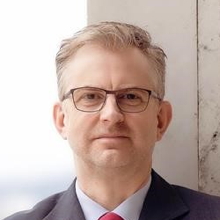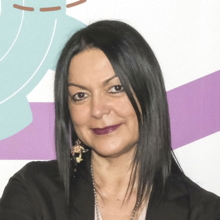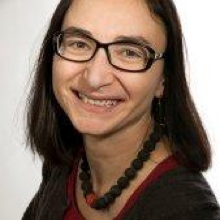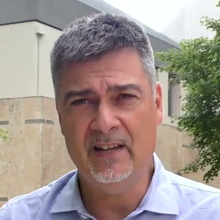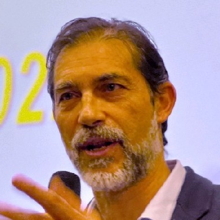Department of excellence
Why are we excellent?
The Department of Environmental Sciences, Informatics and Statistics (DAIS) was founded on the principle of interdisciplinarity and its research topics are primarily focused on the fields of environmental sciences and engineering, computer sciences and engineering, and statistical and economic sciences.
The research and teaching themes of DAIS are enablers for both the ecological transition and digital transformation, which are now recognised as fundamental steps for a sustainable development of society and economy.

DAIS has been offering two main study programs, spanning from undergraduate to doctoral level, active at Ca' Foscari for more than three decades: Environmental Sciences and Computer Science. At the national level, Ca’ Foscari was the first institution to graduate students in Environmental Sciences, while the degree program in Computer Science was the first of its kind to be established in the Veneto region.
Research, often carried out with a multidisciplinary approach, is also conducted in collaboration with public bodies and local organisations. Research projects are funded through competitive calls at regional, national and European levels. The faculty is composed of exceptionally qualified researchers who conduct high-impact research, including five recipients of ERC funding and one recipient of a Levi Montalcini award.
| Our research | 12.73 M |
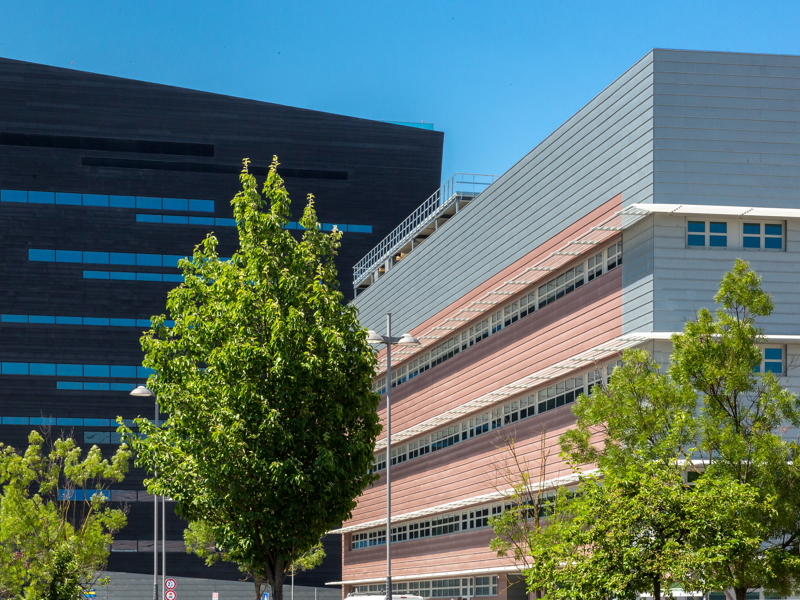
What we will do
The project will investigate the issues of Human-Environment interaction by adopting an interdisciplinary approach. It will address environmental challenges at both local and global levels through the establishment of a dedicated research facility, the "Data-centric Environmental Studies Centre" (DESC). The centre will bring together environmental engineers and scientists working on models, analysis and processes along with statisticians, computer scientists and experts in artificial intelligence. The scientific methodology will be rooted in statistics and computer science, which will be combined with the other disciplines of the centre to achieve innovative solutions to environmental challenges.
Over the course of the next five years, the centre aims at addressing key challenges related to the ecological transition, which are directly linked to some of the goals of the UN's 2030 Agenda for Sustainable Development (SDG: Sustainable Development Goal):
- circular management of carbon and macro-pollutants (SDGs 9, 11, and 13);
- reduction of environmental risks and impacts along the life cycle of products and processes (SDGs 12, 14, and 15);
- management and control of micropollutants and emerging pollutants (SDGs 6, 14, and 15);
- energy efficiency with a view to containing gaseous emissions (SDGs 7, 11, and 13).
Leveraging the department's diverse expertise, the DESC centre will develop integrated and interdisciplinary solutions to address these challenges. This will involve the collection, analysis and processing of environmental data, as well as the design and development of circular processes and measures to mitigate anthropogenic impact. The centre will also aim at fulfilling the university's “third mission”, which includes technology transfer and communication and dissemination activities. Finally, the project will be supported by a substantial investment in research infrastructure.
Funds investment
EUR 14,626,710.00 (including EUR 8,438,960.00 funded by the Ministry of University and Research, MUR)
We will hire
- 1 full professor
- 2 associate professors
- 3 fixed-term researchers (letter B or Tenure Track)
- 2 technical-administrative staff employees
- 3 technical-scientific staff employees
- 5 transitions from fixed-term researcher to associate professor
- 8 two-year research fellows
Project milestones
2023-2025
- Starting recruitment
- Establishment of the Data-centric Environmental Studies Centre (DESC) Research Centre
- Enhancement of instrumentation
- Completion of recruitment
- Launching the research activities of the Centre
- Implementation of DESC Centre Summer School
- Disbursement of PhD scholarships
- Organisation of Hackathons centered on the analysis of environmental data
- Updating the content of Master's and PhD Degree Programmes in Environmental Sciences
2025-2028
- Launching the second phase of the project
- Planning fund-raising activities
- Seminar Series and Dissemination Activities (Civic Engagement)
- Action planning for the future sustainability of the project
- Final monitoring of project activities
Research
DAIS participates in the scientific coordination of the Green and Blue Growth Institute promoted at Ca' Foscari as part of the Research for Global Challenges initiative, which aims to boost European design, and is active on the topics of circular economy, decarbonisation and zero pollution. These themes are central within the following project, are also included in Goal 4 (Strengthening Interdisciplinary and Innovative Research) of the University's Strategic Plan and are priorities in Horizon.
Due to its composition, DAIS can thus play a leading role in a modern "interdisciplinary" and "data-centric" research approach in environmental science and engineering, leveraging both the specific disciplinary research areas in the department and the contribution of the components of statistical sciences and computing systems engineering.
Education
The DESC Centre will facilitate the organisation and delivery of various advanced training activities on project-related topics, such as:
- international Summer Schools on the themes of the Centre;
- supply of PhD scholarships;
- organisation of "Hackathons" centered on the analysis of environmental data;
- updating the content of Master's and PhD Degree Programmes in Environmental Sciences.
Infrastructures
Major infrastructure investments are required for the development of the project and the DESC Centre, funded by the MUR with EUR 2,040,710.00 million.
Planned interventions include:
- computational instrumentation and storage;
- tools and pilot plants for engineering process development;
- infrastructures for indoor environment simulation to support energy efficiency;
- analytical instrumentation for the determination of organic and inorganic contaminants.
Governance
The DESC is monitored by an external Steering Committee and supported by permanent scientific and administrative technicians, as well as specifically hired professors.
Director
Elena Semenzin
Associate Professor in Environmental Chemistry
dais.eccellente@unive.it
Management Group
Andrea Gambaro
Full Professor in Analytical Chemistry
Ilaria Prosdocimi
Associate Professor in Statistics
Cristiano Varin
Full Professor in Statistics
Paolo Pavan
Full Professor in Environmental Engineering
Andrea Torsello
Full Professor in Artificial Intelligence
Steering Committee
The PdE (Excellence Project) is monitored by a Steering Committee made up of 5 external members, 3 of which come from prestigious Italian and foreign universities, and 2 authoritative representatives of the production and management realities of the territory. The Steering Committee has the tasks of verifying, evaluating and monitoring the results achieved and addressing critical issues in the project, identified on the basis of quantitative indicators initially defined and approved.
Gianpiero Adami
Full Professor in Analytical Chemistry
University of Trieste
Gabriella Cuccu
Head of Communications, External Relations and Press Office - Contarina S.p.A.
Sara Martino
Associate Professor in Statistics
Norwegian University of Science and Technology
David Bolzonella
Full Professor in Chemical Plants
University of Verona
Massimo Gattolin
Head of remediation, environmental assessments, waste, air and climate - Municipality of Venice
Last update: 05/05/2025







